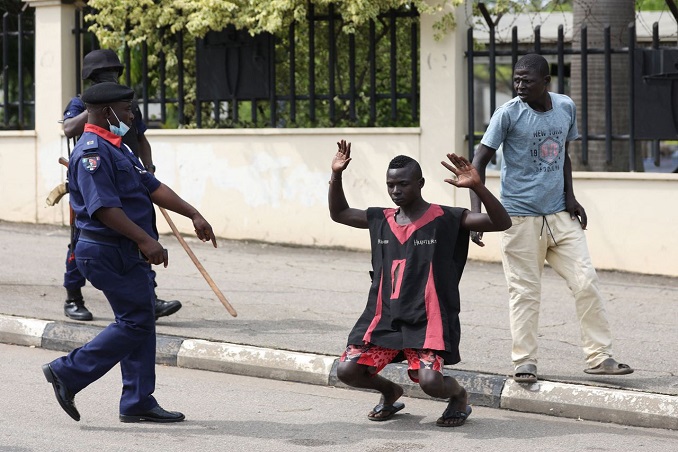Nigeria has decided that all suspects and those charged with terrorism will be tried behind the doors, prompting criticism by human rights advocates. A new court practice has been under implementation in the West African country since last week – it bans the presence of media and public from trials of the suspects in terrorism charges. The practice began from the trial of pro – Biafra separatist leader in Nigeria, Nnamdi Kanu.
Kanu, the dual citizenship holder of Nigeria and United Kingdom, is the leader of Indigenous People of Biafra that campaigns for succession from Nigeria of the Igbo, which is the third-largest ethnic group of Nigeria. Kanu’s trial that was being held in Abuja, the capital city of Nigeria, went on behind the closed doors after Federal High Court of Nigeria announced that all court proceedings for those charged with terrorism offences “shall be held in camera”. This has triggered huge concerns being raised by human rights advocates in the country. “We are concerned that this breaches the constitution,” noted Anietie Ewang, Nigeria Researcher in the Africa division of Human Rights Watch.
Related Posts
Ewang mentioned that the decision by court must be based on individual cases citing confidential security information being leaked out in public during trials, “as opposed to giving out a blanket ban that would clearly restrict public scrutiny.”
Kanu’s lawyer Mike Ozekhome said that the proceedings against Kanu “should be a public trial that the whole world can watch.”
“The right to a public hearing safeguards the fairness and independence of the judicial process and helps to maintain public confidence in the judicial system,” Amnesty International Nigeria office told The Associated Press. “Except when a secret trial is meant to protect the interest of a child, court hearings and judgements must be public,” said Seun Bakare, head of programs at Amnesty Nigeria.
The human rights activists and advocates have raised concerns that trials behind the doors might lead to violation of the rights of accused and unfair practices to hold them accountable.

